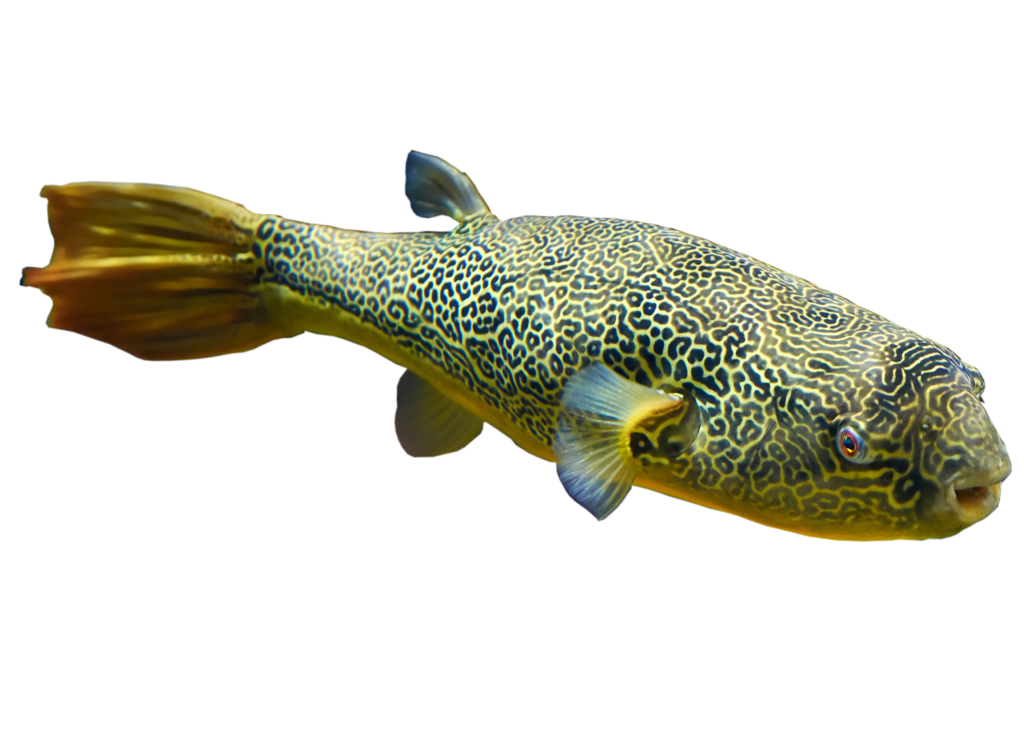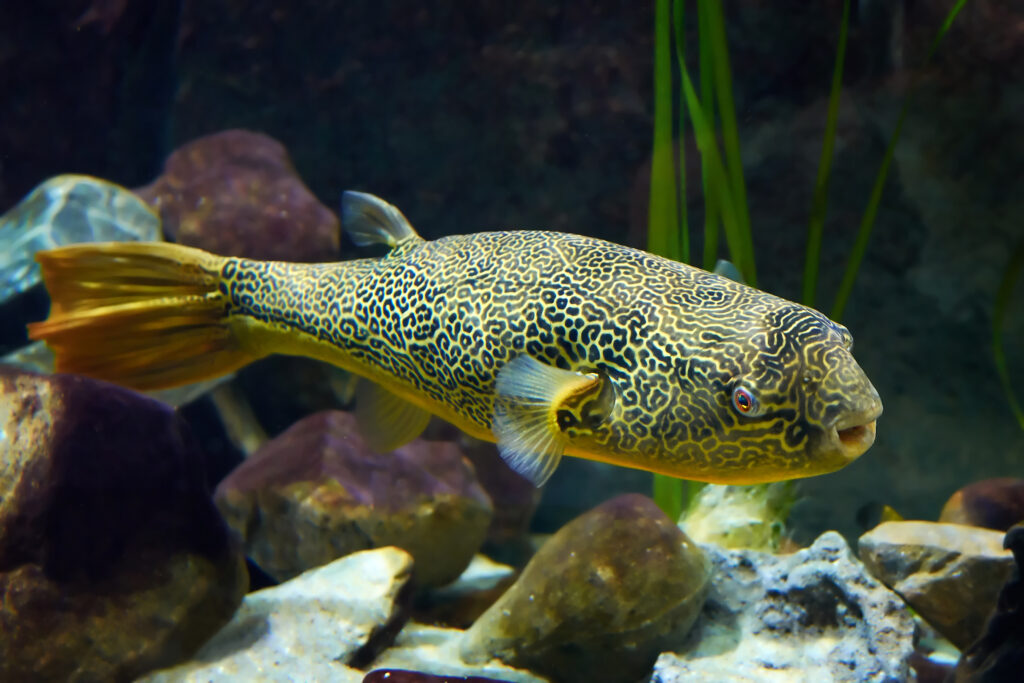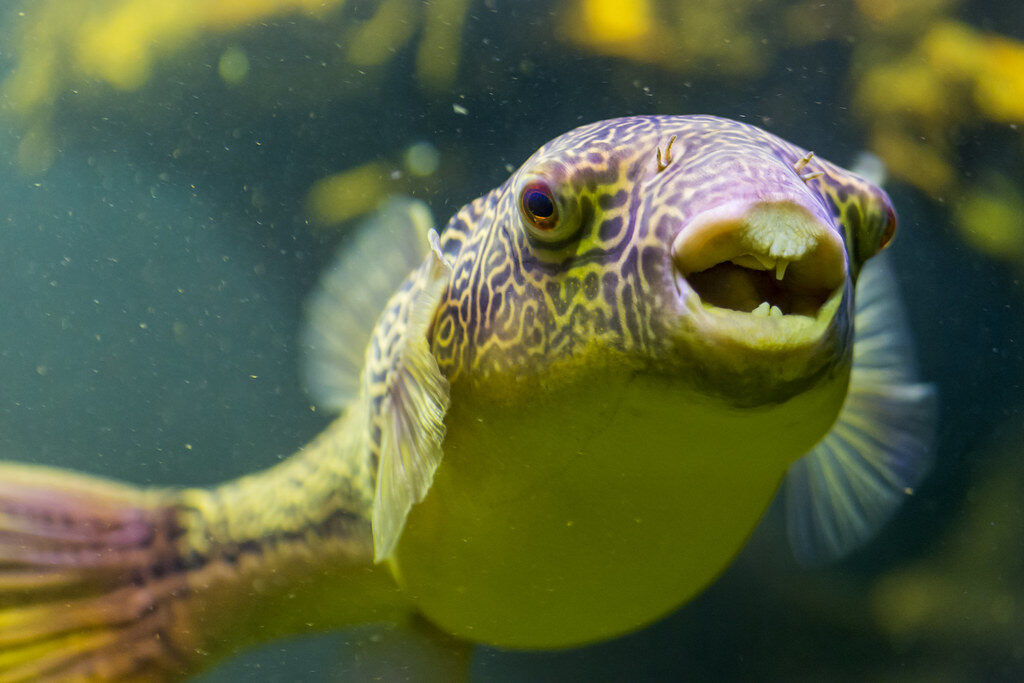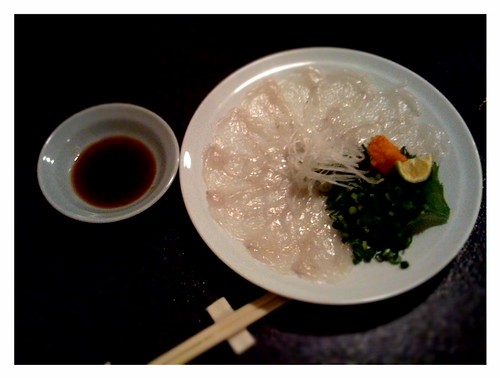
Giant Puffer
Tetraodon mbu

Cute but angry!
The giant pufferfish, or Mbu puffer, as it is also called, is the largest freshwater pufferfish species. Many people think it looks sweet but it is actually a fairly aggressive and dangerous fish!
Individual pufferfish can have very different personalities. Some of them cannot be kept anywhere near other fish of the same species. This aquarium’s two giant pufferfish usually get on with each other.

Photo: Tambako-the-Jaguar-CC-BY-ND
A sharp beak and beach ball shape
The giant pufferfish has front teeth that have merged to form a sharp and strong “beak”. It can use the beak to easily crush the shells of crabs and mussels. The beak is filed down when the pufferfish eats prey with hard shells but it grows out again.
When a pufferfish gets frightened or feels threatened, it can inflate its body with water and air to the size of a beach ball!

Photo: jasewong-CC-BY-NC-ND
Very poisonous
Many parts of the pufferfish’s body contain toxin. This makes them dangerous to eat, and some species are even deadly to humans. In Japan, pufferfish is considered to be a food delicacy, and is called “fugu”. Only specially trained chefs are allowed to prepare this dish.
Pufferfish poisoning paralyses the victim, who dies slowly of suffocation. The victim is conscious the whole time but can neither speak nor move.
Distribution worldwide

Central Africa from the river Congo to lake Tanganyika.
Threat based on the Red List

Trade regulations
CITES: Not listed.